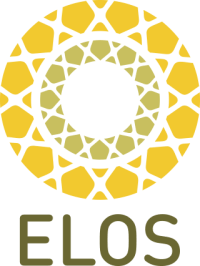This article was voluntarily translated by Eloísa Ferré, a member of the Elos Translation Community.
Read it in Portuguese here.
Read it in Spanish here.
Jovens Ideias, as you know, is the call for supporting socio-environmental transformation projects led by those who have gone through the GSA Program, a community of more than 640 people in 57 countries. Instituto Elos’ strategy is to start by supporting those in Brazil and then expand further.
In 2023, in its debut edition, 8 proposals are receiving financial investment and technical support to set their activities and theories of change in motion across the country. One of the main objectives is to support the systematization of these ideas for change. In addition to exchanges among themselves, the GSA Leaders receive experts for inspiring encounters. That’s what happened on the last 4th, when they discussed the challenges of communicating social impact, especially in specific territories. The meeting was facilitated by Ronaldo Matos, a researcher, journalist, and educator.
Read the report about the young idea of Mirian Fonseca by clicking here.
Ronaldo, one of the co-founders of “Desenrola e Não Me Enrola,” a collective that thinks and produces communication from the peripheries and favelas of the southern zone of São Paulo, is one of the most important scholars on the subject and knows, like few others, how to create communication that connects with people’s lives and paths. For a little over two hours, he shared what he has been discovering and doing. He brought a decolonial perspective of communication to the center of the conversation.
“Communicating,” he argues, “is about building connections.” And this cannot be done without considering the perspectives, backgrounds, and language of those who will receive the stories we want to tell. To bring ideas into practice, Ronaldo transformed a multitude of concepts into experiments and experiences. In exercises. The mind understands, but the body lives the knowledge.
“You can see,” he said almost at the end of the meeting, “we started with a movement to get to know our audiences better. Then it was necessary to learn more about our territories, as they are unique and living organisms. We continue to evaluate possible strategies to reach people’s paths, connecting this with the possibility of revising our narrative since we engage with different people. And finally, we collaborate with other groups that do similar things to us.”
Ronaldo thinks of communication beyond the story, the platform, or the content itself. For him, establishing dialogues with projects that came before, that paved the way, is as important as making art or producing promotional videos for the activities.
“What we discussed here is part of something bigger, which is developing a culture of analyzing data and contexts to make decisions. It may seem boring and laborious, but it’s a necessary process if we want to systematically transform our communities,” he says. In other words, we can and need to trust our intuitions, but it doesn’t hurt to surround ourselves with data and information to think about more strategic movements.
In addition to the Creation Laboratory, Jovens Ideias supports Saberes do Povo do Remanso (Lençóis, BA), Cocriando TRANSformações (Campinas, SP), Associa as Ações (São Vicente, SP), Quilombo GSA – Tereza de Benguela (national), Colorindo a Quebrada com Poesia (national), Museu dos Sonhos Vivos (Recife, PE), and Fim de Semana no Parque (Cubatão, SP).

